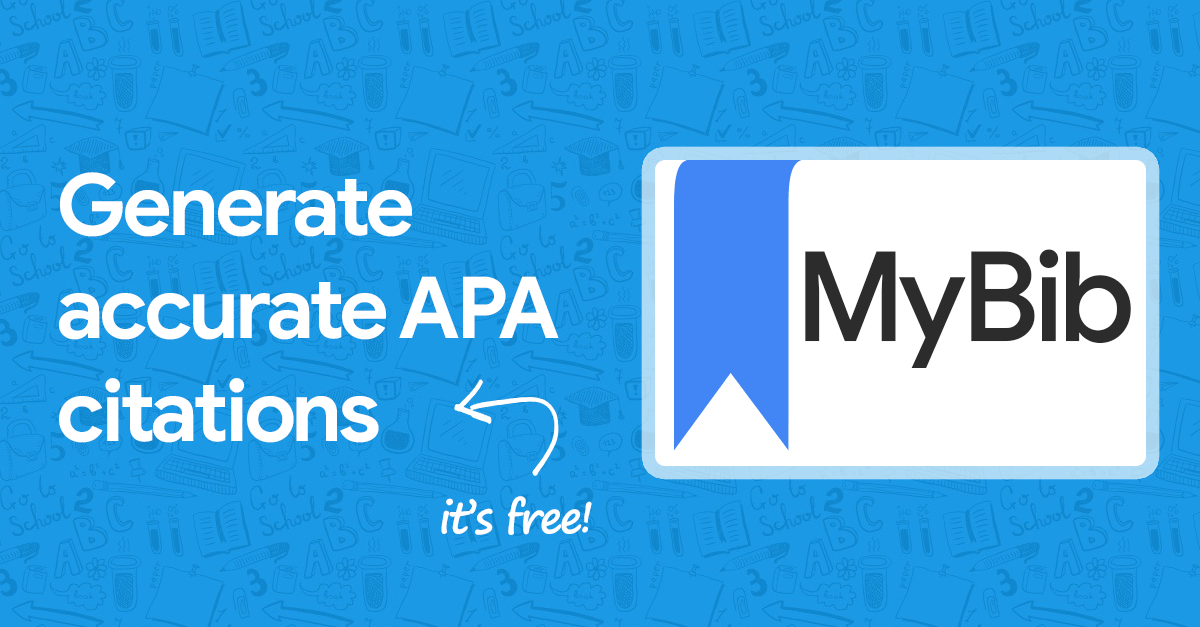An APA citation generator is a valuable tool for anyone needing to format references and in-text citations according to APA style. These generators simplify the process, allowing users to create accurate citations quickly, which is essential for maintaining academic integrity. They can save time and reduce errors that may arise from manual citation, giving users more focus on their research and writing.
Many online options are available, such as MyBib and Scribbr, each offering unique features. These platforms not only help generate citations for various source types, including websites, books, and journal articles, but also provide guidance on how to properly cite and avoid plagiarism. With easy-to-use interfaces, these tools make it simple for students and researchers to adhere to important citation standards.
Using an APA citation generator can greatly enhance the writing experience. By integrating these tools into their workflow, users can ensure their references are formatted correctly and consistently, which is vital for academic success.
Understanding APA Citation
APA citation is an essential part of academic writing. It helps to ensure that sources are credited properly, which enhances the credibility of the work.
History of APA Style
The APA style was developed by the American Psychological Association in the 1920s. It emerged from the need for a standard way to organize and format scholarly articles. Originally created for psychology and social sciences, it has grown in use across various disciplines.
The first edition of the APA Publication Manual was released in 1952. It has undergone several revisions to adapt to new writing conventions and technology. The seventh edition, published in 2019, includes significant updates, such as guidelines for citing online sources.
The Importance of Proper Citation
Proper citation is vital in academic writing for several reasons. Firstly, it gives credit to original authors, acknowledging their contributions. This practice strengthens academic integrity and originality.
Secondly, citations enable readers to locate sources easily. When readers can find the original works, they can verify facts and explore further reading. Accurate citations also help prevent plagiarism, which can have serious consequences for students and researchers.
Creating citations correctly builds trust between the writer and the reader. Using established formats like APA ensures consistency and professionalism.
Overview of Citation Elements
Citations typically include several key elements. These elements provide crucial information about the source being referenced. Common elements include:
- Author(s): The individual or group responsible for the work.
- Publication Year: When the source was published.
- Title: The name of the work, which often indicates its content.
- Source Information: Details like the publisher, journal name, or website link.
Each element plays a significant role in the citation. The arrangement and punctuation must follow specific APA rules. Writers must ensure they include all relevant information for readers to find the sources used in their work.
Features of APA Citation Generators
APA citation generators offer a range of features that simplify the process of creating accurate and properly formatted citations. These tools are designed to help users easily generate bibliographies, format in-text citations, and stay updated with the latest citation styles.
Automatic Bibliography Creation
One of the key features is the automatic bibliography creation. Users can input information such as the title, author, or URL, and the generator compiles a complete reference list. This eliminates the need for manual entry, reducing errors.
Many citation generators also allow users to search for a source directly within the tool. Once found, the generator retrieves all necessary details, including publication year and page numbers. This process saves time, especially when dealing with multiple sources.
In-text Citation Formatting
In-text citation formatting is vital for academic writing, and most APA citation generators handle this task efficiently. Once a user enters the source details, the generator can format both parenthetical and narrative citations automatically.
These tools typically account for various citation scenarios, like multiple authors or no author at all. They also provide guidance on when to cite a source within the text. This ensures clarity and adherence to APA guidelines, which is essential for maintaining academic integrity.
Citation Styles and Updates
APA citation generators frequently update to reflect the latest guidelines from the APA Publication Manual. They also support various citation styles beyond APA, like MLA and Chicago, giving users flexibility for different assignments.
Many tools allow users to customize citations to meet specific requirements. This may include altering formats for online resources, print publications, or multimedia sources. Staying current with these updates helps researchers produce accurate citations and improves their work’s professionalism.
How to Use an APA Citation Generator
Using an APA citation generator simplifies the citation process for anyone working on academic papers. It provides a straightforward way to input information and generate accurate citations. Understanding how to use these tools effectively can save time and reduce errors.
Inputting Source Information
To start using an APA citation generator, the user needs to input essential details about the source. This typically includes the author’s name, title of the work, publication date, and publisher information.
Most generators have specific fields for each piece of information. Users should ensure they fill in all relevant fields accurately. Missing or incorrect details can lead to improper citations.
For example, if citing a book, the user would enter the author(s) and title, followed by the year and publisher name. It is crucial to follow the prompts provided by the generator to avoid common mistakes.
Selecting Source Type
Choosing the correct source type is vital for accurate citations. Most citation generators offer various source types, including books, articles, websites, and more.
Users need to select the source type that matches their material. This selection determines the format and information required for the citation.
For instance, citing a journal article differs from citing a website. The generator will prompt the user for different details based on the selected type. Thus, selecting the correct source type ensures that the generated citation meets APA guidelines accurately.
Reviewing and Editing Citations
After entering the source information and selecting the source type, the user should review the generated citation. While citation generators strive for accuracy, mistakes can happen.
Users should compare the generated citation to their own knowledge of APA formatting. They should check for proper punctuation, italics, and order of information.
If any issues arise, the user should edit the citation accordingly. Many generators allow users to make adjustments to ensure complete accuracy. This step helps prevent errors and enhances the quality of the final bibliography.
Choosing the Right APA Citation Generator
Selecting an appropriate APA citation generator is essential for producing accurate and well-organized citations. Key considerations include accuracy, ease of use, and additional helpful features.
Accuracy and Reliability
Accuracy is the primary factor in choosing a citation generator. A reliable tool should follow the latest guidelines of the APA style, ensuring that citations are formatted correctly. Users should check if the generator is updated regularly to accommodate changes in citation rules.
Many generators will verify the source information input by the user. This helps to catch any potential mistakes. Some popular tools, like MyBib and Citation Machine, ensure that the citations comply with the 7th edition of the APA Publication Manual, which is crucial for academic work.
User Interface and Accessibility
A user-friendly interface can make a significant difference in how effectively a citation generator is used. It should be easy to navigate, with clear prompts for entering source details.
Accessibility is also important. Some generators offer browser extensions, such as Scribbr’s Chrome extension. This allows users to quickly generate citations while browsing sources online. A good tool should also support various source types, including websites, books, and articles, making it versatile for different projects.
Additional Features and Support
Additional features can enhance the usability of a citation generator. Options like saving citations for later use, exporting to different formats, or generating in-text citations are valuable.
User support is another factor. Resources such as guides, FAQs, and tutorials can help users navigate the generator efficiently. Some platforms, like Cite This For Me, offer extensive tutorials on citation rules and tips for citation success, which can be beneficial for students and researchers alike.



